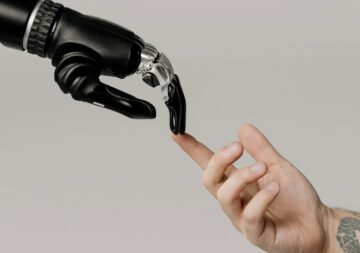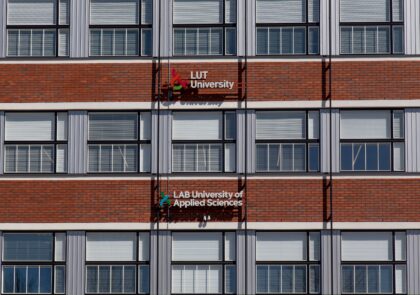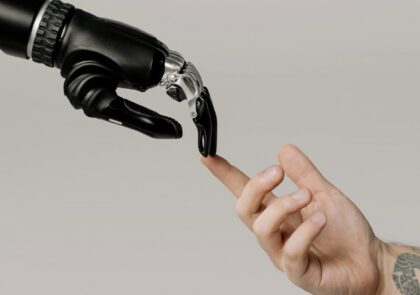
Foreign Service family members can be better supported in developing effective resumes through scalable career guidance. Asynchronous, self-paced learning resources can help family members meet the distinct requirements of both federal and private-sector applications, thereby reducing reliance on intensive one-on-one coaching. Scalable resume-writing resources can widen access, make advising services more sustainable, and ultimately improve the employment prospects of Foreign Service family members working within complex global labor markets.
Authors: Saana Karikumpu & Sajal Kabiraj
Job and Role of the Resume
Landing a job often begins with a single page: the resume. At first, it may seem like a simple task, but a resume is much more than a technical document. The resume writing process shapes professional identity, builds confidence, and sets the stage for the further job application process (Hayes et. al 2023, 6-8). Yet, for many job seekers, especially those with diverse work histories or career breaks, resume writing remains one of the most daunting and time-consuming tasks.
AI-driven resume generators have expanded rapidly in recent years. They allow job seekers to produce keyword-optimized resumes tailored to specific vacancies in minutes. AI tools, such as ChatGPT, are becoming increasingly sophisticated, offering real-time feedback and writing suggestions (Rahman et al. 2023, 2-3). Even though these tools can help a resume pass Applicant Tracking Systems (ATS) and even appeal to the human eye of a recruiter, their benefits often end there. AI is useful for rephrasing, proofreading, and even giving feedback, but a resume generated without personal reflection risks remaining shallow. This neglects the valuable process of identifying one’s own skills, strengths, and achievements, which helps to build confidence. Outsourcing too much to technology risks weakening this foundation.
Resume writing is an art which can be perfected with time and experience. Creativity and innovation plays an important role in conveying the right message to the potential recruiters which is often like matching the right pieces in a puzzle. Design thinking helps individuals to progress through iteration and shapes a new direction in team collaboration and strategic initiatives. Showcasing the understanding and appreciation of design thinking principles in one’s resume can be advantageous in the recruitment process (Foster, 2021). It is important to first study the requirements of the position, introspect whether one has the necessary skill sets for the position and then customize the resume to highlight the essential and desired skills.
Job seekers need to learn and relearn and this often involves improvising skills most of the time. Prospecting the requirements of the future workplace and acquiring such skills would be ideal. It is necessary to view the modern workplace as a place with a process driven mindset to continuously learn, experiment, adjust, and adapt. This mindset should be reflected in one’s resume. Companies are seeking individuals who are willing to appreciate others, empathise, can learn fast, challenge assumptions, thrive better and contribute holistically with a forward thinking vision.
Career coaches play a key role in helping job seekers gain clarity on their career goals, identify transferable skills, and build confidence. Unfortunately, career coaching and resume-writing services often come with a high price tag, making them less accessible to many job seekers. While career coaching is consistently shown to be highly effective and receives strong satisfaction ratings from clients (Karikumpu 2025, 54; Rahman et al. 2023, 2), a one-hour session is rarely enough to cover resume writing fundamentals, let alone more in-depth job search strategies or interview preparation.
Meanwhile, the internet offers countless free resources, from blog posts to polished resume templates. These can be useful, but finding reliable, up-to-date advice often means hours of scrolling time that could be better spent on the actual applications: a process many job seekers describe as equivalent to a full-time job (Korn 2025).
Towards More Accessible and Sustainable Career Guidance
What is needed is a middle ground: resources that combine both the clarity and confidence from a coaching session with the accessibility of digital tools. Saana Karikumpu (2025) researched how asynchronous learning resources could fill this gap in the context of U.S. Foreign Service family members. The study identified the most common challenges in both federal and private sector resume writing and explored the types of asynchronous learning resources that could address these challenges.
Karikumpu’s research developed an e-learning resource that helps job seekers reflect on their own experiences, skills, and job targets and tailor their resumes to vacancy announcements. This resource combines bite-sized content with interactive elements, clear examples, and support materials, such as resume templates, checklists, and a fillable master resume workbook. Feedback from test users showed how this approach not only helped draft better resumes but also boosted their confidence and helped them understand the resume writing limitations in both the private sector and federal contexts. (Karikumpu 2025, 84-85.)
The way forward is to view career services as ecosystems that combine human expertise, AI tools, and scalable learning resources. Instead of buying a single polished document for each application from resume-writing services, scalable learning resources empower individuals to create their own resumes, understanding both the “why” and the “how” of strong applications. Together with the smart use of AI tools and possibly one-on-one coaching, this approach makes career support more future-ready. As the saying goes, giving a man a fish, they eat for a day, teaching a man to fish, they eat for a lifetime.
References
Foster, M.K. 2021. Design Thinking: a Creative Approach to Problem Solving. Management Teaching Review. Vol. 6(2), p.237929811987146. Cited 12 November 2025. Available at https://doi.org/10.1177/2379298119871468
Hayes, C.A., Randall, C., Buys, N. 2013. The Résumé-Development Process and Its Impact on Job-Search Behaviour. International Journal of Disability Management. 2013; 8:e2. Cited 7 October 2025. Available at https://doi.org/10.1017/idm.2012.10
Karikumpu, S. 2025. Master Resume For A Global Lifestyle. Master’s Thesis. LAB University of Applied Sciences, Master of Business Administration. Cited 7 October 2025. Available at https://urn.fi/URN:NBN:fi:amk-2025110627272
Korn, J. 2025. Job Searching Feels Like A Full-Time Job. That’s Because It Is. Forbes. Cited 7 October 2025. Available at https://www.forbes.com/sites/juliakorn/2025/07/16/job-searching-feels-like-a-full-time-job-thats-because-it-is/
Rahman, M., Figliolini, S., Kim, J., Cedeno, E., Kleier, C., Shah, C. & Chadha, A. 2023. Artificial Intelligence in Career Counseling: A Test Case with ResumAI. ArXiv. Cited 7 October 2025. Available at https://doi.org/10.48550/arXiv.2308.14301
Authors
Saana Karikumpu, Master’s student, Master of Business Administration (MBA), Faculty of Business and Hospitality Management, LAB University of Applied Sciences, Lahti.
Sajal Kabiraj, PhD, Principal lecturer, Faculty of Business and Hospitality Management, LAB University of Applied Sciences, Lahti.
Illustration: https://unsplash.com/photos/white-printer-paper-beside-silver-laptop-computer-7iSEHWsxPLw (Markus Winkler, Unsplash-License)
Reference to this article
Karikumpu, S. & Kabiraj, S. 2025. Beyond AI and Expensive Career Coaching: Scalable Career Support for Resume Writing. LAB Pro. Cited and date of citation. Available at https://www.labopen.fi/lab-pro/beyond-ai-and-expensive-career-coaching-scalable-career-support-for-resume-writing/






